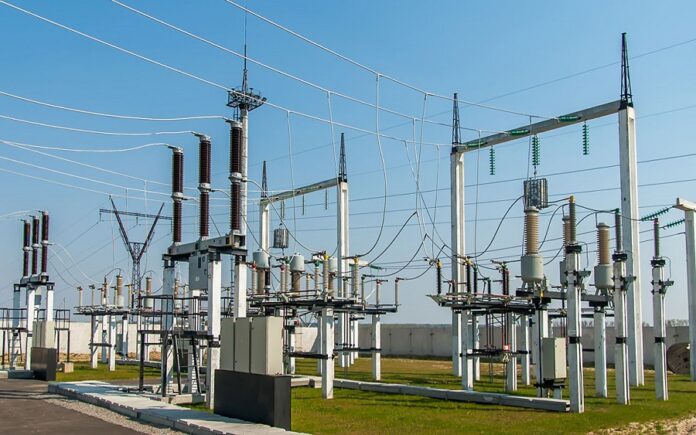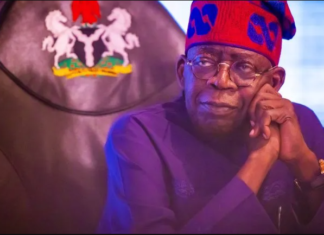Neighbouring countries drain Nigeria of resources
Nigeria is building a $1.96 rail line from Kano to Maradi in Niger Republic to supply crude oil from Niger Republic to a refinery being built in the border town between the two countries, even as Nigeria’s four refineries are not functional.
The contract, championed by Muhammadu Buhari, was approved in September by the Federal Executive Council (FEC) in a country which hardly scrapes enough of its abundant natural resources to benefit its 206 million citizens.
Besides, the three neighbouring countries of Benin, Niger Republic, and Togo are owing Nigeria N700 billion in unpaid bill for power supply from a country that does not generate enough electricity for its own citizens to lift its economy.
The Nigerian Electricity Regulatory Commission (NERC) disclosed in its newly released report that the money is owed for the second quarter of 2021 (Q2 2021) by the three countries and some other special local customers.
The bill is owed the Nigerian Bulk Electricity Trading Company (NEBT) and the Market Operator (MO) of the Transmission Company of Nigeria (TCN), the NERC said.
As part of Nigeria’s wasteful mentality, about $16 billion was sunk into power in the Olusegun Obasanjo years (1999 to 2007) alone, without stable supply in those years and none since.
Currently, installed generation capacity is 16,384 megawatts (mw) from all sources but output is an average 4,000mw. Urban connection to electricity is 86 per cent and rural 34 per cent, according to data on usaid.gov/powerafrica.
In contrast, installed generation capacity in South Africa – with a population of 60 million – is 58,095mw, produced for both local consumption and sale to neighbouring countries. Urban connection is 95 per cent and rural 92 per cent.
Nigeria is Africa’s largest economy by volume based mainly on crude oil. But South Africa is the most developed country on the continent.
Apart from endemic financial corruption, unstable power supply is the biggest hindrance to Nigeria’s economic growth.
By March 2020, Nigerians were running private power generators at a cost of $14 billion per year to prevent the collapse of lives and businesses through unstable electricity supply from the national grid.
Per Nairametrics reporting, the amount was disclosed by Director in charge of African Development Bank (AfDB) in Nigeria, Ebrima Faal, who said that would have negative impact on the power sector.
In 2019, Nigerians spent about $12 billion fueling private power generators.
_______________________________________________________________
Related articles:
$400b required to power 25m homes by 2050, says minister
Lagos power supply gets 20 hours daily boost off national grid
Solar power system to generate $10m yearly in import substitution
New law in the offing to upgrade power sector
_________________________________________________________________
Local, international consumers
Power firms in the neighbouring countries are Societe Nigerienne d’electricite (NIGELEC) in Niger Republic; Societe Beninoise d’Energie Electrique (SBEE), in Benin Republic; and Compagnie Energie Electrique du Togo (CEET), in Togo.
“During the quarter under review, NBET and MO issued a total of N0.77bn in respect of energy sold by NBET and services rendered by MO to the special (Ajaokuta Steel Co. Ltd and other bilateral customers) and international customers (Societe Nigerienne d’electricite – NIGELEC, Societe Beninoise d’Energie Electrique – SBEE and Compagnie Energie Electrique du Togo– CEET),” NERC disclosed.
“No payment was made by these customers during the quarter under review. It is hoped that as the economy of these customers improves post-COVID-19 lockdown so that they will resume the settlement of their bills in full.”
Payment by local Discos
The NERC disclosed that local power distribution companies (Discos) did not pay all their bills in Q2 2021, as reported by The PUNCH.
“During the second quarter of 2021, a total invoice of N259.7bn was issued to the eleven Discos for energy received from the Nigerian Bulk Electricity Trading Plc and for service charge by MO, out of which a sum of N130.11bn was settled, representing remittance performance of 50.11 per cent.
“This represents a 1.78 percentage point decrease from the final settlement rate recorded in the first quarter of 2021.”
Only Eko Disco met its minimum remittance thresholds to the NBET in Q2 2021, during which total Disco remittance was 76 per cent of expected total, according to the NERC.
Average aggregate remittance performances to MO and NBET decreased 1.78 percentage points from 51.88 per cent in Q1 2021 to 50.1 per cent in Q2 2021.
“Discos remittance performance level ranged from 10.51 per cent (Yola) to 63.69 per cent (Eko) for NBET and 28.76 per cent (Yola) to 99.88 per cent (Eko) for MO.
“Ikeja recorded zero remittance to MO in the months of May and June 2021 as they wait to resolve Service Level Agreement dispute.”
Total billing to consumers by all the 11 Discos was N268.97 billion and total collection from customers N185.29 billion in Q2 2021, a collection efficiency of 68.89 per cent.
The NERC said N3.11 out of every N10 worth of energy sold was not collected from consumers in Q2 2021.
“Thus, only a marginal improvement in the collection efficiency is noticeable over the 68.55 per cent recorded in the first quarter 2021.”











